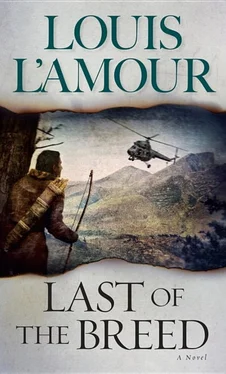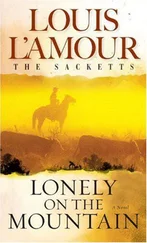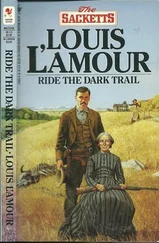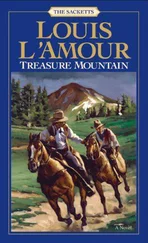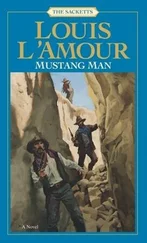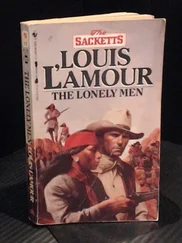Louis L'Amour - Last of the Breed
Здесь есть возможность читать онлайн «Louis L'Amour - Last of the Breed» весь текст электронной книги совершенно бесплатно (целиком полную версию без сокращений). В некоторых случаях можно слушать аудио, скачать через торрент в формате fb2 и присутствует краткое содержание. Город: New York, Год выпуска: 2010, ISBN: 2010, Издательство: Random House Publishing Group, Жанр: Триллер, Историческая проза, Приключения про индейцев, на английском языке. Описание произведения, (предисловие) а так же отзывы посетителей доступны на портале библиотеки ЛибКат.
- Название:Last of the Breed
- Автор:
- Издательство:Random House Publishing Group
- Жанр:
- Год:2010
- Город:New York
- ISBN:978-0-553-89935-1
- Рейтинг книги:3 / 5. Голосов: 1
-
Избранное:Добавить в избранное
- Отзывы:
-
Ваша оценка:
- 60
- 1
- 2
- 3
- 4
- 5
Last of the Breed: краткое содержание, описание и аннотация
Предлагаем к чтению аннотацию, описание, краткое содержание или предисловие (зависит от того, что написал сам автор книги «Last of the Breed»). Если вы не нашли необходимую информацию о книге — напишите в комментариях, мы постараемся отыскать её.
Last of the Breed — читать онлайн бесплатно полную книгу (весь текст) целиком
Ниже представлен текст книги, разбитый по страницам. Система сохранения места последней прочитанной страницы, позволяет с удобством читать онлайн бесплатно книгу «Last of the Breed», без необходимости каждый раз заново искать на чём Вы остановились. Поставьте закладку, и сможете в любой момент перейти на страницу, на которой закончили чтение.
Интервал:
Закладка:
Once, atop a ridge, they stopped, and the driver awakened him. He had a thermos of tea. “Here! You can share!”
“A thermos?”
The driver gave him a knowing smile. “I do good business and with the right people. I can get anything! Anything at all!” He patted the wheel. “That’s what this does for me! I have a truck and I can move! Everybody wants something! Even the leaders! Believe me, if I stopped driving, a lot of people would suffer! They are all on the take! Everyone!”
“Even Zamatev?”
The driver shook his head. “Not him! Nobody can touch him! Offer a bribe and you find yourself in a labor camp! He has plans, that one! I can see it in him! He thinks he will be very big someday and wants nobody hanging to his coattails reminding him he owes them favors!”
He drove on in silence. “Don’t ever cross him. Take it from me, he’ll have you hunted down and killed! It has happened! When he was on the way up, there was a man who knew him, saw him show cowardice, and spoke of it. That man disappeared.
“Gone! Like that!” He snapped his fingers. “Everybody is afraid of him! He has big ears! If anyone breathes in Magadan, he hears it in Yakutsk!”
The truck slowed. “Look! Somebody walking! And we are fifty miles from a town! Well, of all things! It is a woman!”
She turned toward them. “Stop the truck,” Zhikarev said. “I know her.”
Chapter 34
Joe Mack lay on a ridge under a wind-wracked cedar, its gnarled and twisted branches almost as thick as the trunk. It was an old, old cedar, over which many cold winds had blown, but now nothing stirred on the ridge, and Joe Mack lay quietly on the cold ground.
Not far away, there was a drift of snow, and it showed a little darkness along its lower, southern edge, where some melting had begun.
Spring was coming, and thus far he had survived the winter. His eyesight, always excellent, seemed to have improved with use. Now he could see, far away, the smoke of a fire. Nothing moved that he could see, for the distance was too great, but men were there, men who were hunting him.
Somewhere out there was Alekhin, and Alekhin was a tracker. A man of his skills could eventually find almost any trail. He was cunning. He had trailed wolves, as well as men, and would know every trick of the wilderness. Yet there were some worth trying. What he needed most of all was a good, safe hideout. Once in such a place he could remain still, and if he made no tracks he would leave none. He could just wait them out.
For that he must have a place with a water supply. He must have meat enough to survive for weeks if need be.
They were coming in force and the search would be thorough, yet it was Alekhin he feared, Alekhin or the chance discovery of some blundering soldier who just happened upon him.
Down below there where the soldiers would be coming, their walking channeled by the country itself, he had taken the time to prepare some traps. These men would not be the same as those others, so he had used some of the same devices.
At a place where a wide step was needed to cross a small stream, he had left some sharp stakes hidden by leaves and snow. A man taking the long step necessary to step over the stream would drive his foot into the angled stake, placed to receive him.
At other points he had arranged cords made of roots to trip a follower and a sharpened stake to meet him when he fell. He had also arranged some deadfalls of heavy logs. None of these would stop pursuit, but they would arouse caution and slow the soldiers down, make them less eager to try to find him.
At another point, a natural lockout into the canyon, he had undermined a flat rock slab and then propped it in place. A quick step and the slab would fall into the canyon, taking whoever stepped on it.
The canyon he had reached was either that of the Kolyma or the Indigirka, and he suspected the latter, although his map was not clear enough, considering what little he knew of the country. But the canyon was at least a mile deep and probably more. It was wild, lonely, and picturesque. Now to find a place to hide.
Joe Mack was familiar with canyons. He had spent time in both the Snake River and the Salmon River canyons in Idaho, deeper canyons than those of the Colorado. He had spent months wandering their few trails, climbing down their rock walls, taking refuge in caves.
He found himself on a high, wild plateau, swept by icy winds. There were scattered cedars, very little snow, and much broken rock, as well as scattered boulders and uptilted slabs. Careful to step on no fallen sticks, he moved across the flat rock, working his way toward the edge of the canyon itself. Fortunately, he had time.
From a projecting ledge, he studied each side of the canyon, and far down, perhaps a thousand feet from the top he saw a small cluster of cedar among a grove of aspen. The trees seemed to be growing on a level area. A small waterfall dropped off the side nearby. As the air was very clear, he knew the place was farther away than it appeared to be. To the usual eye it was but one of many outcrops where trees had found a lodging.
He moved slowly ahead, searching for animal tracks. Soon he found those of a goral and followed them. They wandered off into the forest, and he looked for others. Finally, he found what he wanted, the tracks of a mountain goat and later those of a small bear. Their trail followed a narrow, tree-clad ridge until they suddenly dropped off into a snow-choked hollow. He followed, and then going around a huge old cedar, the tracks dropped over the edge of the cliff. He could see the river, running with white water, a good two thousand feet lower. The path was narrow, and he edged along carefully, facing the rock for a dozen yards at a time, clinging to mere fingerholds. When he could glance down, he saw fringes of ice in some of the tiny coves, but the river itself was unfrozen.
Twice he crossed small open areas scattered with trees, picked up the trail again, and worked his way further along. Twice he went across acres of scattered rock fallen from the peaks and cliffs above. Then through a crevasse, along the bottom of which water trickled. Then ducking under a projection of rock, he emerged on the cliff face once more. For a moment he stood there, scanning the rim opposite and the sky; then he looked back to the vantage point from which he had chosen his destination.
Nothing. Nobody in sight. He edged out on the trail, but found he could walk easily. The edge was perilously close, but he had spent much of his boyhood in such places.
When he came to the area he was seeking, just on the chance it would provide what he wanted, he found himself almost cut off by the rushing stream that provided the waterfall he had seen.
Searching, he found a place where he could cross, and soon he was standing in a small hanging valley, its walls covered with stone pine and cedar, its basin half choked with aspen. But there were two little meadows and a small pond, marshy at the near edge. The marshy part was still frozen and covered with scattered snow.
The little valley comprised no more than forty acres and seemed to offer no way out that he could see, yet there was nearly always a way, if one had the patience to look and the skill at climbing.
There were many tracks of both deer and mountain goats, most of them fresh. He killed a ptarmigan at the edge of the pond and began searching for a place to camp. They might find him here, but he doubted it.
Alekhin, if he was around? Well, maybe.
Nowhere could he find any evidence of previous visits. He killed a mountain goat and skinned it out, taking what meat he wanted. Most of all, he wanted the hide, for his vest was sadly worn from the rough treatment, and the pelage of the mountain goat is the softest and warmest of any animal in the north country. When he had the meat and the hide, he went to the farthest end of the hanging valley, around a small bend that offered complete concealment. There he built a fire and roasted some of the meat. Sitting by the fire, he studied his surroundings. He must find a place in which to shelter himself, but he must also find an escape route if one existed. Studying the sides of the valley, heavily forested, he decided he might climb through the forest, pulling himself tree by tree up the forbidding cliff.
Читать дальшеИнтервал:
Закладка:
Похожие книги на «Last of the Breed»
Представляем Вашему вниманию похожие книги на «Last of the Breed» списком для выбора. Мы отобрали схожую по названию и смыслу литературу в надежде предоставить читателям больше вариантов отыскать новые, интересные, ещё непрочитанные произведения.
Обсуждение, отзывы о книге «Last of the Breed» и просто собственные мнения читателей. Оставьте ваши комментарии, напишите, что Вы думаете о произведении, его смысле или главных героях. Укажите что конкретно понравилось, а что нет, и почему Вы так считаете.
